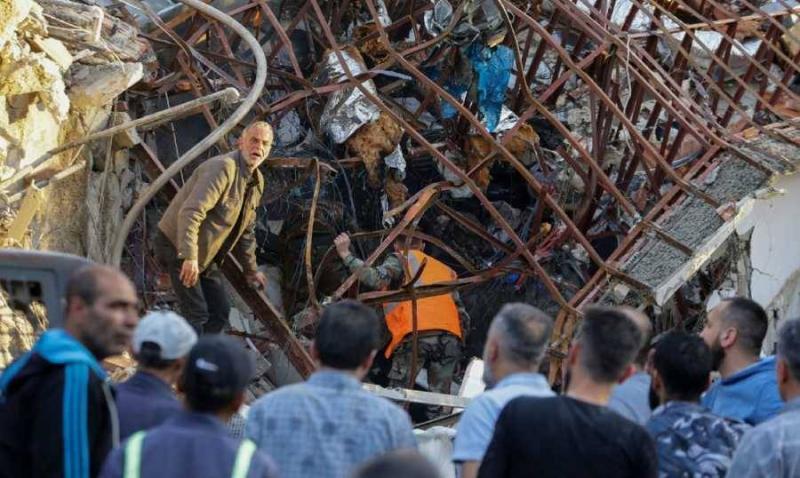The region is currently facing the repercussions of the Israeli attack on the Iranian embassy in Damascus. While Iran, led by Supreme Leader Ali Khamenei, has threatened a harsh response, attention is turning to potential Iranian retaliation against Israel and the implications for the region.
Lebanese citizens fear that the Iranian response to the Israeli attack may come from southern Lebanon, possibly through "Hezbollah," dragging the country into an undesirable war. However, historical experiences indicate that "Hezbollah" has not executed any operations against Israel in reaction to attacks on Iran; responses have consistently been Iranian, regardless of their magnitude. Observers do not expect a reaction proportional to the attack, considering that Israel is attempting to escalate regional tensions and broaden the war, whereas Iran wishes to avoid falling into devastating conflicts that would have catastrophic outcomes regardless of who wins or loses. Therefore, Iran is likely to seek to absorb the situation.
Political analyst Amin Bashir, in an interview with "Al-Anbaa" electronic newspaper, rules out a widespread and comprehensive war, suggesting that "Hezbollah" and Iran are biding their time until the upcoming U.S. elections and a possible resolution, opting not to plunge into a large-scale war. Meanwhile, Israel is exploiting this reality to carry out assassination operations that relieve pressure in the region and enhance its image among its populace.
Bashir anticipates that Israel will continue its policy of targeted assassinations and operations in the near future, especially as evidence shows that Israel is capable of breaching the security of Iranian leaders and their allies through technological advancements, satellites, and drones.
In Lebanon, a sense of anticipation prevails without any new developments on the escalating front between Israel and "Hezbollah" in the south. Engagement continues at varying intensities—sometimes escalating and at other times calming—but there are no signs that the conflict will cease anytime soon. Rather, it appears that Lebanon faces a prolonged war of attrition.
In Gaza, a new crime against humanity was committed by Israeli airstrikes, targeting the Central Kitchen's global facilities and resulting in the deaths of several workers. The justifications provided by Israeli leaders, claiming the attack was unintentional, did not suffice to assuage international condemnation, which held Israel responsible for the assault.
In summary, the wars in Gaza, southern Lebanon, and across the region are ongoing and seem poised to extend into the future. However, Lebanon has not yet fortified itself by achieving its necessary commitments in light of successive opportunities. Nevertheless, the increased pressure may present an opportunity in this context, according to "Al-Anbaa" electronic newspaper.




